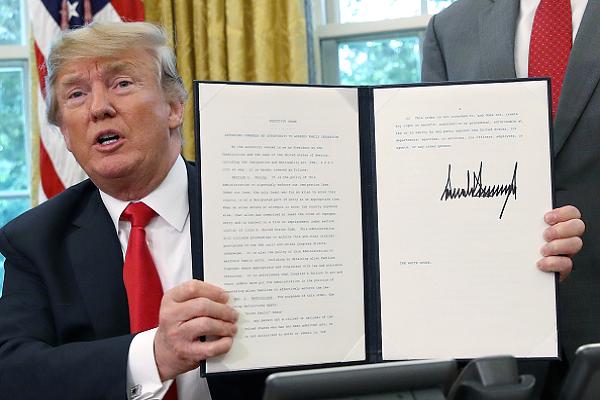Here in Maine, we are going to be using Ranked Choice Voting in the primaries on June 12, and there are seven Democratic candidates running. That means, that with the always-available Write In slot, we can rank up to eight candidates. I am ranking five. Two weeks ago, I was only planning on ranking four. So who am I voting for and why? Let me start with who I am NOT voting for.
I am NOT voting for Donna Dion. While she received enough petition signatures to qualify for the ballot, she tried and failed to qualify for Maine’s Clean Election funding, which shows a lack of broad support, or a lack of organization or both. I had seen her gathering signatures for her petition to be on the ballot, in person. I have never seen anyone collecting signatures on her behalf, which again points to either a lack of support or organization, or both. Since she failed to qualify for Clean Elections financing, I had tried to find a campaign contribution site for her as part of gathering that info for ALL of the Democratic candidates for all positions that include Biddeford, and failed. When I attempted to reach out to her campaign to get this info directly, it took a week and a half to get a response, and it came from her directly, not from a staffer (again, lack of support and/or organization), and she does not have one. She takes cash or checks only through a PO Box. I am not voting for her because she doesn’t stand a chance, and has not shown any ability to even run an effective campaign, I am not going to trust her with the State government.
I am NOT voting for Janet Mills. I think overall she’s doing a good job as Attorney General, but that is a very different job. She has been able to block some of LePage’s bad policies. She has been able to work around some others (using a court awarded windfall to buy and distribute Narcam to multiple police departments after LePage kept blocking the availability through health care), using her discretion to decline to defend LePage’s policies in court, etc. However, she has also used her discretion badly.
She has been fighting to prevent the Penobscot Nation’s water rights to the river of the same name. Water rights codified and guaranteed in their Treaty with the United States. When she failed to block those rights, she has sued the EPA to loosen water protection laws as it pertains to one specific river, the Penobscot, which has the effect of denying the Penobscot peoples from using the river for sustenance because the water would then be too polluted to be usable. Janet Mills then joined in on a similar lawsuit in Washington State that has the same effect to a Native People there.
While she currently has a failing grade with the NRA, at one time she did have an A+ rating with them during her time in the State Legislature for voting down common sense gun laws that are again in the national consciousness after multiple mass shootings at schools and public venues.
(I am not going to address gun issues elsewhere in this column as everyone else is straight-forward in supporting common-sense gun legislation while still supporting gun rights in general.)
So, on to those that I AM going to rank.
In fifth place, Diana Russell. Honestly, one of the main reasons I’m ranking her at all is due to her work to get RCV a reality, even sacrificing time and energy from her Gubernatorial campaigning to fight to get the Citizen’s Veto on the ballot to restore RCV after the Legislature tried to kill it, then defending it in multiple lawsuits by the GOP. However, from what I have seen of her, she is a better activist than administrator. She was elected to the Legislature previously on an activist agenda, and from what I can tell, didn’t accomplish much. Her campaign now is one of an populist activist that is destined to be fighting the Legislature rather than working with it to accomplish even common goals. And she has now run into a couple minor campaign finance violations, one may have been a legitimate error, but the other is a definite should-have-known-better issue.
In fourth place is Mark Dion. I was going to leave him out until a couple weeks ago when I finally had the chance to hear him speak, just him not part of a panel discussion/debate. Former police officer, former Sheriff of Cumberland County, former State Rep, current State Senator. He is definitely more on the Conservative side of the party, but still, his Law And Order stance is tempered in a big way by basic Humanity. His law enforcement career has always had the focus of helping and working with the community. He helped setup community centers to get kids and others on the edge off the streets and into productive activities. Prevention, rather than clean-up.
Slots one, two and three, however, keep shifting, and mostly because of Adam Cote.
Last Summer, Adam Cote wasn’t even on my list, then over the winter as I heard more of and from him, he slowly moved up my list to number one, but now has slipped back down to two or three. Army vet, very involved in Clean Energy both in and out of uniform. He created and ran a company that dealt with assisting with making clean energy policy around the world. But of all the candidates, he seems to be in a feud with Mills, with both of them twisting facts about the other. As noted above, I’m not voting for Mills anyway. So this is a bit of a knock down, but as it’s the only thing I have against him, he’s still on the list.
Probably my number one pick now is Mark Eves. Former family councilor, former State Rep, former Maine Speaker Of The House. In that position doing his job, he earned the ire of Gov LePage who used his bully pulpit to block an unrelated job offer to Eves when Eves got term-limited out of the House. Of those I’m ranking, Eves has the most experience in Maine State Government leadership. Mark Dion may have more time based experience, but not as high, which in my opinion gives him an edge on how to get things done, and get them done right.
Which leaves Betsy Sweet in positions two or three. She hasn’t worked IN the State government, but has worked WITH the government for decades on multiple issues and topics. She is also one of two Democratic candidates that applied for Clean Elections funding and the only one to qualify. I think that for me, Eves nudges above her only on the basis of in-government experience.

